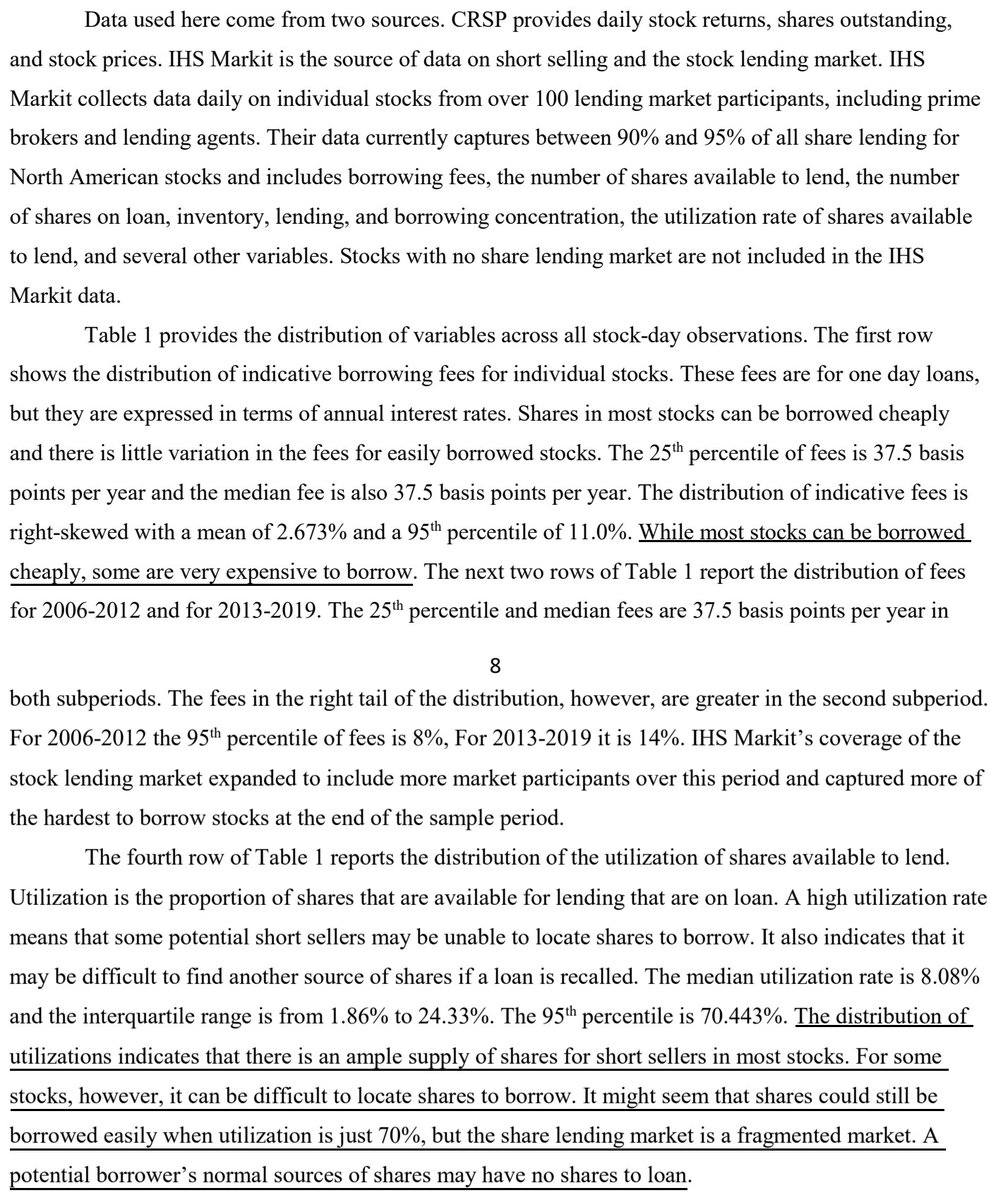
1/ When Equity Factors Drop Their Shorts (David Blitz, Guido Baltussen, Pim van Vliet)
* The alphas of equity factor short legs is subsumed by those of the long legs.
* Only the short (not long) legs of HML, low vol, and low beta are subsumbed by FF5.
papers.ssrn.com/sol3/papers.cf…
* The alphas of equity factor short legs is subsumed by those of the long legs.
* Only the short (not long) legs of HML, low vol, and low beta are subsumbed by FF5.
papers.ssrn.com/sol3/papers.cf…

2/ The authors separate the long and short legs of the Fama-French factors and take opposing positions in large-cap and small-cap market portfolios to create new factors that focus on the performance of the long and short legs in isolation.
(VOL uses trailing 36-month HV.)

(VOL uses trailing 36-month HV.)


3/ The long and short leg factors tend to have similar Sharpe ratios in isolation, but a portfolio that combines all of the long legs outperforms a portfolio of the short legs (Sharpes of 1.10 vs. 0.69).
This suggests that the long legs offer a greater diversification benefit.



This suggests that the long legs offer a greater diversification benefit.




4/ Indeed, average pairwise correlations between long-leg factors (-0.04) are lower than for short-leg factors (0.31).
Combining factors into portfolios generally leads to higher Sharpe ratios, but the benefit is greater for the long-leg portfolios.


Combining factors into portfolios generally leads to higher Sharpe ratios, but the benefit is greater for the long-leg portfolios.



5/ For the factors examined, the long leg has positive α after controlling for the short leg, but the reverse is not the case. This is highly stat. significant after the factors are combined in portfolios.
A max Sharpe optimization chooses almost entirely the long-leg factors.

A max Sharpe optimization chooses almost entirely the long-leg factors.


6/ The short legs are more expensive to trade, harder to manage, less diversifying, and more prone to tail risk (Table 5); yet they seem to offer no extra benefit.
AQR has looked at this as well (2012: Israel, Moskowitz) with slightly different results:
AQR has looked at this as well (2012: Israel, Moskowitz) with slightly different results:
https://twitter.com/ReformedTrader/status/1121185861196890112
7/ "Adding large-cap long legs adds more to factor premiums than small-cap short legs.
"The added value of the long leg is consistently positive and significant across time, while the shorts consistently do not add alpha over the long legs."


"The added value of the long leg is consistently positive and significant across time, while the shorts consistently do not add alpha over the long legs."



8/ "The long legs exhibit a consistently lower drawdown risk compared to the short legs.
"The shorts exhibit more negative skewness and higher excess kurtosis, a higher semi-deviation, and a much higher 95% VAR. The systematic contribution to downside risk is also higher."


"The shorts exhibit more negative skewness and higher excess kurtosis, a higher semi-deviation, and a much higher 95% VAR. The systematic contribution to downside risk is also higher."



9/ Results are similar for the international samples (North America, Europe, Japan, and Asia Pacific), both over the 1990-2018 and in decade subperiods. 





10/ "The poor performance of growth stocks can be fully explained by their 'junk' resemblance, but the strong performance of value stocks cannot be attributed to 'quality' resemblance.
"The finding of Fama and French (2015) is entirely driven by the short side of HML."

"The finding of Fama and French (2015) is entirely driven by the short side of HML."


11/ "The poor performance of high-risk [high-volatility] stocks can be fully explained by their 'junk' resemblance, but the strong performance of low-risk stocks cannot be attributed to 'quality.'
"There is a similar asymmetry between the long and short leg results for BETA."


"There is a similar asymmetry between the long and short leg results for BETA."



12/ For further reference, Asness, Frazzini, Gormsen, and Pedersen break Betting-Against-Beta apart into separate factors that focus on correlation and volatility and find that the volatility side is subsumed by FF5.
https://twitter.com/ReformedTrader/status/1128344679940911104
13/ There may also be a tax benefit to L/S portfolios due to the ability to harvest short-sale losses during bull markets (when most needed). It would be interesting to explore this idea in the context of long stocks + short index futures or short SPY.
https://twitter.com/ReformedTrader/status/1073478278080475136
• • •
Missing some Tweet in this thread? You can try to
force a refresh






















